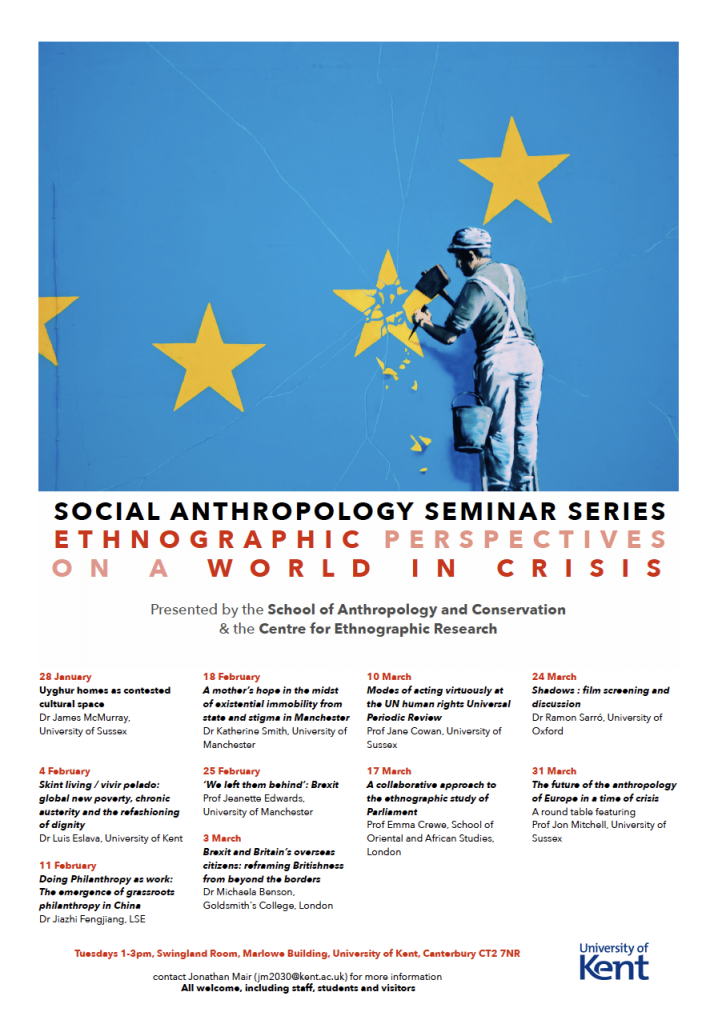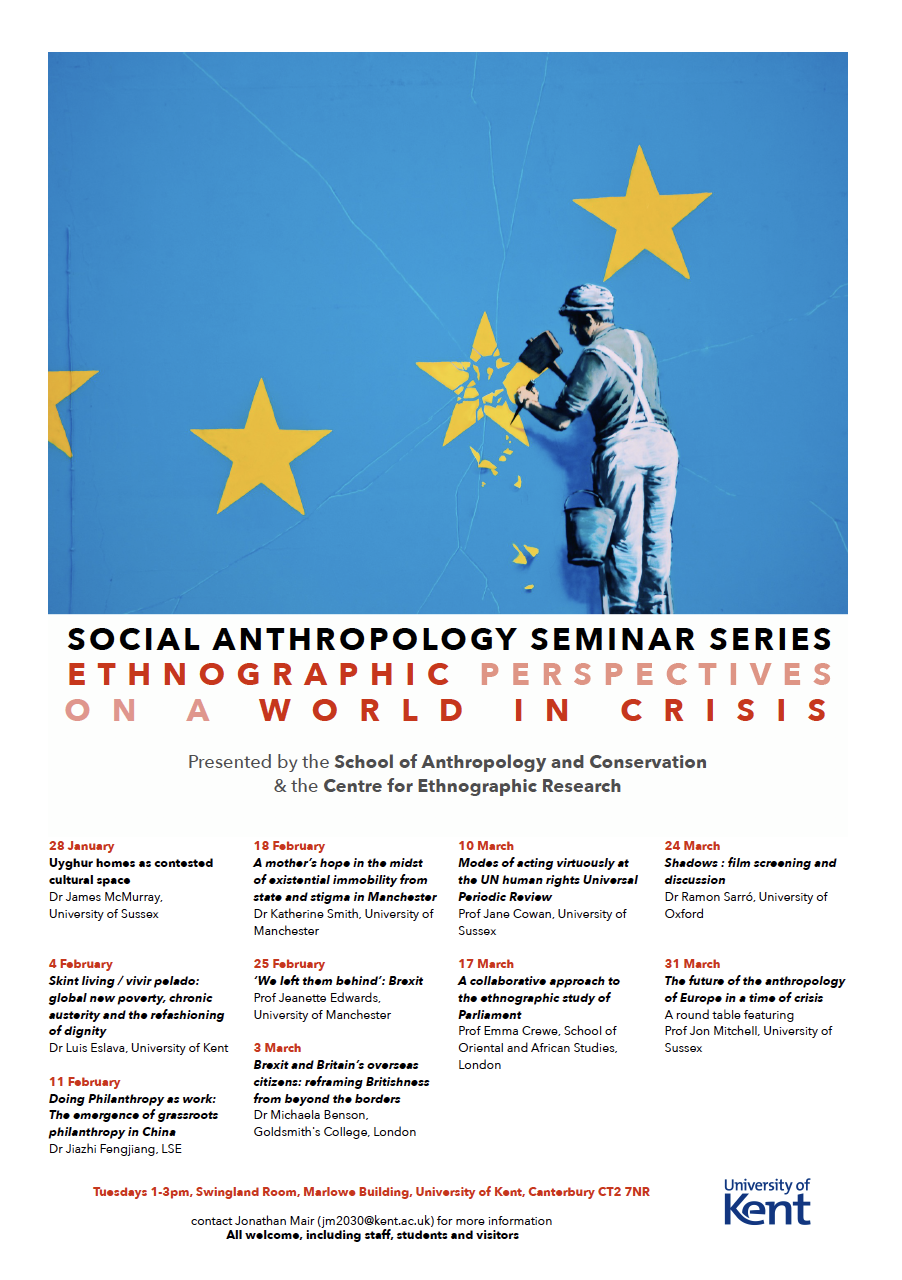Kent Law School’s Dr Luis Eslava will be sharing new research on contemporary global poverty, austerity programmes and the ‘refashioning of dignity’ as part of a collaborative Social Anthropology Seminar Series organised by Kent’s School of Anthropology and Conservation and the Centre for Ethnographic Research.
The innovative series, titled ‘Ethnographic perspectives on a world in crisis’, focuses on the world’s interlinked crises and what an ethnographic approach can reveal about the complexities of some of the most vexed and divisive global issues today.
Dr Eslava will address poverty in the twenty-first century for his seminar on Tuesday 4 February entitled ‘Skint living/vivir pelado: global new poverty, chronic austerity and the refashioning of dignity.’ In his abstract for the talk, Dr Eslava says: ‘While “extreme” poverty may have fallen, the number of those living just above the poverty-line has risen dramatically. This “new poverty”, and the mechanisms deployed to alleviate it, is redrawing the meaning of political, economic and social life for most of the world. In Latin America, the phrase “vivir pelado”, (literally “living skinned”, or “skint” to use the British equivalent) expresses the condition of struggling permanently to make ends meet and hence of searching constantly for a stable income, or for any income at all. Approaching the international legal order ethnographically, and keeping Bataille’s concept of the “general economy of the world” in mind, I use this phrase as a way into the complex drama underpinning contemporary global poverty, its relationship to ongoing austerity programmes and the refashioning of dignity world-wide.’
Other speakers participating in the series include Professor Emma Crewe (School of Oriental and African Studies, London) who has conducted the first ethnographic study of MPs and Parliament, and Professor Jon Mitchell (University of Sussex), a leading light in the anthropology of Europe. The first seminar, on Tuesday 28 January, is led by Dr James McMurray (University of Sussex) and focuses on ‘Uyghur homes as contested cultural space.’ Other seminars will be addressing issues such as philanthropy, Brexit and the future of national and international political institutions.
Seminars take place weekly from 1pm – 3pm on Tuesdays in the Swingland Room (Marlowe Building).


